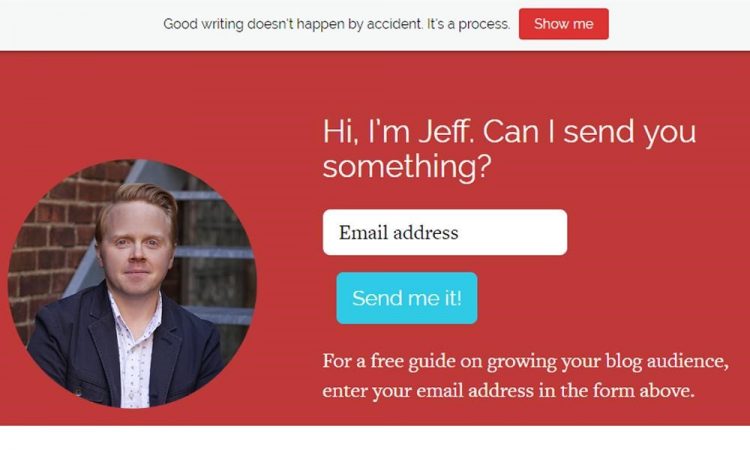Pros
1. It Brings Traffic (aka People) to Your Site

You’ve just created your sharp new website. You’ve shown it to friends and family, and now you’re hoping that thousands of potential customers will admire it too! But how exactly do you expect them to do that? Is the process of attracting potential clients for your website clear to you?
It’s crucial to develop a comprehensive pipeline from search to click to conversion. That way, you can better understand user intent and cater to what a potential buyer wants.
Let’s go through a brief overview of how people might find your virtual business card:
- By typing your name directly into a search engine. These are the people who are performing “branded” searches; that is, they already know your business by name. Since they already know who you are, this doesn’t really help you with the goal at hand: getting new people (prospective clients or customers) to view your website and consider using your business services. This is not a sustainable source of traffic for your website since only a limited number of people will be familiar with your brand.
- By spamming email lists you bought from someone else. This method is particularly inefficient and has poor conversion results since nobody likes spam (you don’t either, do you?). It’s quite expensive and, more importantly, it’s deemed illegal in many countries. This isn’t a reliable way to bring in traffic either.
- By investing in paid advertising. This one isn’t illegal, but it could prove very expensive. The cost of PPC (pay-per-click) advertisements adds up very quickly. The main thing here is that the exact moment your advertising budget runs out, your traffic stops – and so do your new leads.
So, is there a dependable way to bring traffic to your website? Yes, there is. Surprise! It’s called blogging! Why is blogging important in terms of bringing in new clients? A good blog post can convert more customers than dedicated landing pages from sponsored content. However, to use blogging effectively, you must leverage search engines and social channels to promote your new blog posts.
How do you take advantage of search engines to boost traffic? Create content that people actually want to read and publish regularly on your website.
The average business website has about 5 pages that explain what the company is about, what they do, who runs it, where they’re located, and other basic information. So, once you’ve published those pages, search engines could very well forget about your website.
But every new page you publish is a signal that tells search engines to check your site for more.
Another important thing to consider is that quite often, organic search traffic is what converts best. If you’re selling shoelaces and your site has relevant content that ranks highly for searchers looking to purchase shoelaces, you have a high chance of converting those people into new customers.
In digital marketing, we call that “Hot Traffic”, because those users are already interested in whatever you are selling. They’re performing high intent searches that are likely to end in a transaction and you’re there to show them what they want (a post about shoelaces) at the exact moment they want it (when they’re looking it up using search engines).

By contrast, if you buy traffic through paid ads, you’re probably going to see lower conversion rates, because people won’t be as interested. They may not be very far down the interested buyer funnel. Even search traffic coming from sponsored content doesn’t convert as well as organic blog posts on your website.
If you publish helpful and fresh content, you give people the chance to share it with their friends and colleagues on social media platforms such as Facebook, Linkedin, and more. By doing so, they increase your brand’s reach, putting your site in front of people who might not have known about you.
2. It Captures New Leads from That Traffic

While increasing your brand awareness is extremely important, you also want to generate new clients. So, how do you achieve that?
Well, there are different subtleties to consider. Essentially., you need to do only one thing: include a lead magnet with an enticing call-to-action (CTA) on every blog post you publish. Research shows that the average Click-Through Rate (CTR) for CTAs across every industry is 4.23%. That’s higher than the CTR for Google ads. This is one of the biggest pros of when you start a blog.
Most of the time, your call-to-action invites people to download bonus materials such as free ebooks, white papers, or any other kinds of useful resources. Alternatively, you could ask them to join a webinar you’re going to run on a topic related to your blog, or even more specifically, about the topic of that exact blog post. You could also offer free trials of your product, discounts, coupons, etc. These are the aforementioned “lead magnets”.
 Basically, you can give people anything you feel they would happily exchange their contact information for. And the simple process works like this:
Basically, you can give people anything you feel they would happily exchange their contact information for. And the simple process works like this:
- A person visits your site.
- They read your blog post and see the call-to-action for a freebie.
- They click on that call-to-action, which redirects them to a specific landing page on your website or opens a pop-up that asks them to fill out a couple fields with their email, name, and other information depending on your goals.
- They fill in their information, submit the form by clicking a button, and receive the promised freebie right away.
When you start blogging, don’t worry about not converting 100% of your visitors, because it’s impossible to do so. It’s typical for people to visit a site only to quickly scan information and leave. You probably do the same thing.
3. It Makes You an Authority
Do you know what trait all the most successful business blogs share? They all answer questions that their customers (or potential customers) most frequently ask. The more useful content you publish for your target audience, the more likely those prospective clients are to see your brand as an authority or industry leader. When you take the time to develop relationships with potential customers, it proves invaluable when it comes to sales.

By dispensing and demonstrating your expertise over time, you become a go-to resource for your specific industry or niche. That’s one of the biggest privileges of the internet. Even as a new or small business, you have a chance to compete with other businesses by building trust with your target audience.
What if a customer doesn’t fully understand something about your industry, your company, or your process, and you send them a well-written article with helpful tips explaining it? How do you think that would affect their perception of you and your company?
- If you help out potential customers with useful information, they will come to trust you overtime. The next time they need a service like yours, guess who they’ll think of first?
- Leads who have consumed your articles will be far more educated than the average prospect. They’ll know more about your industry, your position in the market, the services you offer, and how you offer them. This allows you to have much more constructive interactions with your leads and ultimately makes it easier when it comes to closing deals and making money.
- You can make the whole process easier for your sales team by creating useful resources addressing every main objection from your prospective clients. This way, you’ll be perceived as a more professional and trustworthy company, making your leads easier to convert.
4. It Drives Long-Term Results
 So, you’ve invested some time and/or money to produce a well-written blog post and published it. It generated a couple of leads today and it will deliver a couple more in the days to come. What next? Does it all end there? This is extent of the pros, right?
So, you’ve invested some time and/or money to produce a well-written blog post and published it. It generated a couple of leads today and it will deliver a couple more in the days to come. What next? Does it all end there? This is extent of the pros, right?
The good news is that the advantages don’t end there.
That means that you’ll continue to receive fresh traffic and leads from them for a long time to come.
The marketing and sales blog HubSpot published some research on the traffic and leads coming from their blog a couple of years ago. The takeaway message was that at least 70% of each month’s traffic came from old blog posts, not the ones published that month. When it came to leads, old posts provided about 90% of them!
This is one of the reasons why many marketers say that blogging is a long-term game. You are unlikely to see any substantial results immediately or even in a few months, but if you keep blogging, you’ll eventually be able to rely on a stable source of traffic and leads without requiring further investments.
5. It Fosters Connections with Influential People
 One aspect of blogging that few business owners take full advantage of is the opportunity to use it for connecting with important people in the industry. If you have a professional blog with quality articles and an established audience, many influencers will happily agree to give you an interview or a quote for an article.
One aspect of blogging that few business owners take full advantage of is the opportunity to use it for connecting with important people in the industry. If you have a professional blog with quality articles and an established audience, many influencers will happily agree to give you an interview or a quote for an article.
This gives a boost to your blog post shares if the influencer shares it with their own audience through social media or a newsletter. But, most importantly, you have an opportunity to create genuine relationships with influential business figures, which leads to new business opportunities and other meaningful connections. That’s why blogging gives a huge boost to your business network.
6. It Makes Your Company Human
 A growing trend among successful businesses today is the ability to build and maintain meaningful relationships with their customers. People tend to buy products and services from people and brands they trust, and one of the best ways to build that trust is to show your humanity as a brand. Other bloggers are catching onto this trend and prioritizing
A growing trend among successful businesses today is the ability to build and maintain meaningful relationships with their customers. People tend to buy products and services from people and brands they trust, and one of the best ways to build that trust is to show your humanity as a brand. Other bloggers are catching onto this trend and prioritizing
Why don’t you communicate who you are, how you run your business, what your values are, and what role you play in your industry? It can be a very powerful contribution to rapport. And at the same time, it could be very difficult (if not impossible) to deliver all of these things on a single landing page. But what about the blog?
As it turns out, blogs are the perfect platform for such information. Publishing in depth stories about your company, your employees, and your customers is very easy on your blog. And the best part is that you link readers to the helpful information that you provide your customers.
Are you writing a post with practical advice on how to overcome some challenges related to your niche? Nobody’s stopping you from injecting a few anecdotes here and there about a customer who followed your advice and now is happy with the results. Or you could highlight how your team gained the knowledge to produce such an article through years and years of challenges working in your industry.
 Share this Graphic on Your Site
Share this Graphic on Your Site
Please include attribution to ContentAdore with this graphic.
<a href="https://contentadore.com/pros-cons-blogging/">
<img src="https://contentadore.com/wp-content/uploads/2018/09/6-benefits-new-1500w.jpg" title="6 Benefits of Blogging for Business - ContentAdore Infographics" alt="Image of 6 Benefits of Blogging for Business - ContentAdore Infographics" width="540px" border="0" />
</a>
Cons
1. It Requires Time and Can Be Time Consuming
 Like anything worthwhile in this life, blogging takes time and patience. It’s one of its more notable cons of blogging. It takes effort to come up with new ideas for fresh and engaging blog posts. Additionally, you can’t expect to see huge results from the very beginning. Yes, it could happen, but it’s definitely not the norm.
Like anything worthwhile in this life, blogging takes time and patience. It’s one of its more notable cons of blogging. It takes effort to come up with new ideas for fresh and engaging blog posts. Additionally, you can’t expect to see huge results from the very beginning. Yes, it could happen, but it’s definitely not the norm.
An established online presence and a loyal audience are built over time; they aren’t overnight achievements. Therefore, you have to be prepared to wait to see significant returns on your investment in this new marketing channel.
If you want to see good results as soon as possible, you must resist the urge to take rushed action. Take a step back and plan a well-structured strategy for producing consistent and interesting content instead. As ironic as it may seem at first, that’s how blog marketing works. You have to be methodic if you don’t want to spend time and money frivolously once you start a blog.
2. Differentiating from the Competition Isn’t Easy
 The internet has gone through many changes during its evolution from its early days until now. The difficult thing to digest for many people is that digital marketing has become more difficult over the years. Which of the following is a disadvantage of using blogs as a marketing tool?
The internet has gone through many changes during its evolution from its early days until now. The difficult thing to digest for many people is that digital marketing has become more difficult over the years. Which of the following is a disadvantage of using blogs as a marketing tool?
Well, this doesn’t mean that you have no hope of using this channel to grow your businesses – quite the opposite, in fact. The opportunities are still there. It’s just that you can no longer rely on there being low levels of competition.
You still can enjoy some improved ROI from time to time using marketing “hacks”, “tricks” and “loopholes”. But if you’re looking for stable and long-lasting profits, you can’t ignore evergreen business and marketing basics.
Essentially, what it boils down to is this: you must have a good product, and you need to find the optimal positioning for it in the market. If you do that, blogging drives huge growth for your business and creating blog posts that end in conversions will become second nature to you.
This brings us to the important of choosing the right angle when you start a blog. This is crucial for individual posts as well as for the overall editorial game plan for your blog. There are already many bloggers in every niche out there, so what makes yours stand out?
Your blog must be an extension of your company, aligning itself with your core marketing strategy and position. Thus, if you don’t have an established strategy or position, starting a successful blog will probably require a good amount of research and thought first.
If you fail to position yourself properly, you may experience poor results once you start a blog. This can be one of the cons of blogging if you’re not strategic about it. On the other hand, if you can effectively differentiate yourself from the competition, it’s only a matter of time before you start seeing great results and actually make money blogging.
Again, all of this assumes that you have a legitimate business product or service which meets the needs of consumers. And I’m confident you do!
Conclusion
I hope this post helped you get a realistic understanding of blogging and what it can achieve for your business. There are many more benefits, but I can’t cover all of them in a single article. The ones outlined here are the benefits that have the highest impact on your business. It’s more than possible to overcome the cons of blogging if you’re patient and develop a good strategy.
These will be the best arguments in your favor if you have to convince someone at your company that starting a blog is the right move to drive traffic and make money blogging.
Make sure you consult Content Marketing or blogging experts so you have a clear idea of how much you need to invest to get start blogging, as well as how much you’ll need to continually invest on a regular basis. And don’t forget, a blog is one of the marketing channels with the greatest ROIs, but it takes some time to deliver results.
Remember these insights of blogging pros and cons when you develop a plan for investing into this powerful platform. Not only can blogging boost traffic for your business, but it also serves as a creative outlet for content creators. Keep in mind that outsourcing content–having a specialist write content that stands out from other blogs–is also a worthwhile decision.
Do you have anything else to add? How has your business benefited since you started blogging? Feel free to share your own pros and cons of blogging in the comments below!



 (11 votes, average: 3.91 out of 5)
(11 votes, average: 3.91 out of 5)
Great article, Viktor! Very insightful.